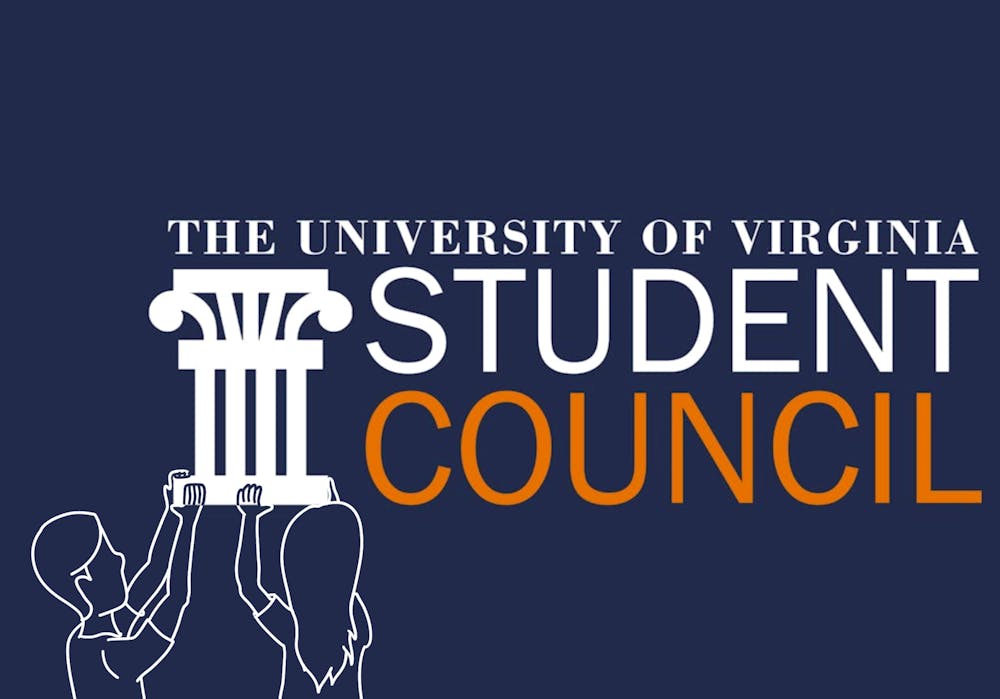This year, The Cavalier Daily Editorial Board endorses three candidates running for College of Arts and Science Student Council representative — first-year student Jackson Sleadd, first-year student Dalton Haydel and first-year student Brian Ng. In their brief but impactful time at the University, these candidates have demonstrated a fresh, nuanced and informed approach to student self-governance that transcends their tangible experience. These candidates are prepared to take advantage of the unprecedented $5 million Student Council endowment in a practical way that genuinely advances student interests. Additionally, they each articulated a need for concrete initiatives to increase both the accessibility of necessary student services and the transparency of Student Council as a whole. Above all, the Editorial Board was impressed by their compelling visions for how Student Council can realistically bargain with University administration to drive positive change for the student body.
Sleadd currently serves as the first-year class council president and first-year representative on Student Council, positions that have prepared him to deftly navigate the intricacies of the Student Council system and advocate for student needs. Sleadd hopes to transform what he believes is a problematic Student Council culture in which representatives are compelled to approve bills and resolutions en masse without critical consideration. To do this, he proposes that voting be mandatory so as to encourage thorough reading of bills and so that public comment can be devoted to constructive conversation as opposed to default approval. Sleadd’s tangible vision to engender more engaged and meaningful student self-governance extends beyond the Council’s internal workings to the University at large. He aims to make endowment funding accessible to CIOs and promote more meaningful cooperation between Student Council and class councils. He also deeply appreciates the role that DEI initiatives can play in bridging the gap between Student Council and the local Charlottesville community. The Editorial Board strongly believes in Sleadd’s potential to construct a more accessible Student Council that intentionally empowers a variety of student initiatives.
Haydel’s vision for Student Council also centers around realistic and transparent initiatives that are driven by the imperative for accessible student services and increased student engagement. Haydel advocates using the endowment to alleviate disproportionate financial burdens on CIOs and individual students. The endowment, to Haydel, will help Student Council provide the funds that CIOs need for things like travel to and from competitions. He also anticipates that this funding could be dedicated to more creative initiatives, like the $5 CavAdvantage grants and an on-Grounds location for Student Financial Services. With Haydel as a representative, students can also expect to know about these initiatives. From leveraging dorm building bulletin boards to posting regular social media updates, Haydel articulated a clear vision for greater transparency. The Editorial Board hopes that Haydel will leverage his commendable tangible initiatives — both for the endowment and transparency — to ensure that Student Council continues to be in touch with and serve all students.
Ng currently serves as a first-year representative on Student Council. For Ng, running for representative is a means to concretely elevate student voices. Despite this admirable idealism, he also understands the limitations of Student Council’s power. Over his short tenure on Student Council, Ng has demonstrated his commitment to bringing student body concerns straight to administration — he spearheaded a resolution to allow pepper spray on Grounds, a policy common at other colleges. Despite the resolution being repeatedly tabled, he reached out to Timothy Longo, chief of the University Police Department and vice president for safety and security, to better understand the barriers to implementation. As this instance demonstrates, Ng not only respects the relationship between Student Council and administration, but also actively listens to find common ground. He is truly a model for how Student Council should continue to engage in bargaining — through collective, productive and nuanced conversation with knowledgeable University leaders. While such conversations may seem defeatist, Ng understands that they are essential in persistently protecting student interests against administrative overreach. The Editorial Board is greatly impressed by Ng's wealth of knowledge about student self-governance and is excited for him to advocate for causes that the student body cares about.
Radical change does not always call for overtly radical leadership. These candidates, while emphatically pragmatic and solution-oriented, embody the creative and realistic outlook necessary to actualize their goals and support students. Moreover, all three are prepared to build Student Council into a bargaining power that relentlessly stands for student interests above all else. We envision these candidates taking advantage of the transformative potential of the endowment to advance their practical and creative ambitions for the student body. As first-years, all three candidates will bring a novel yet exceptionally well-informed perspective to Student Council. The Editorial Board is confident that Sleadd, Haydel and Ng will strive tirelessly to enhance the accessibility and transparency of Student Council for all students.
CORRECTION: A previous version of this article misleadingly stated that first-year Jackson Sleadd hoped to transform what he believes is a problematic Student Council culture in which representatives are compelled to approve Contracted Independent Organizations en masse without critical consideration. In his interview, Sleadd cited CIOs as an example of his larger vision to transform what he believes is a problematic culture in which representatives are compelled to approve bills and resolutions en masse. The article has since been updated to reflect this change.
The Cavalier Daily Editorial Board is composed of the Executive Editor, the Editor-in-Chief, the two Opinion Editors, their Senior Associates and an Opinion Columnist. The board can be reached at eb@cavalierdaily.com.







